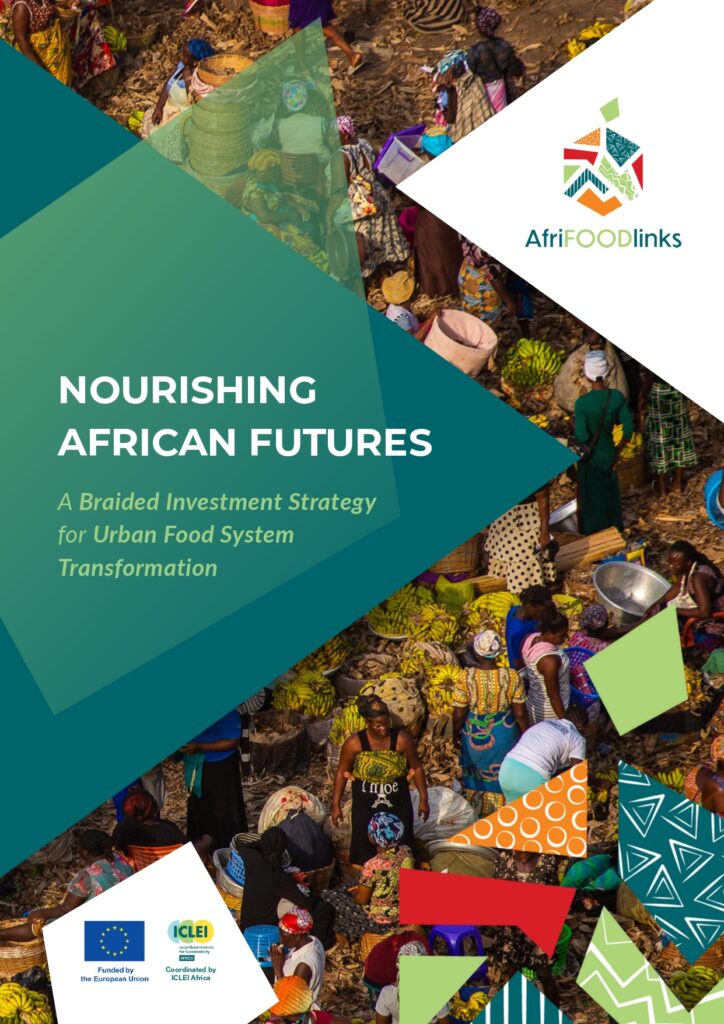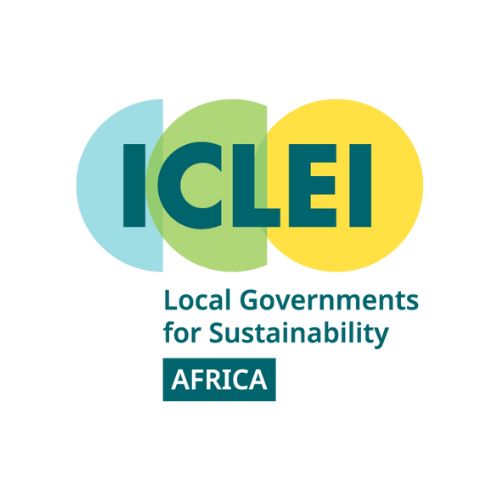Home » Explore the latest project news » Five ways cities are building better food systems together
Five ways cities are building better food systems together
Network Cities Digest

Since its launch, the AfriFOODlinks Network Cities Platform has grown into a vibrant space where cities share practical, context-specific solutions, along with lessons learned and key insights. To date, nearly 112 cities have participated in the network, engaging in insightful dialogue on governance, nutrition, food security, sustainability, resilience, and more.
At the heart of the programme is a dynamic webinar series that has become a hub for peer-to-peer learning and collective reflection. Participation has been diverse: civil society organisations account for 30% of attendees, while 24% represent local and sub-national governments – half of them from Network Cities. Perhaps most encouragingly, 59,5% of all participants are women, reflecting our strong commitment to equity, representation, and inclusive leadership in every learning space.
Through a series of thematic virtual exchanges, the platform has spotlighted concrete initiatives, policies, and lessons from African and Global South cities. These online conversations have gone beyond knowledge sharing; they are shaping new thinking, seeding collaborations, and giving visibility to those leaders at the forefront of tackling urban food system challenges.
As the Network Cities exchange series continues, a number of insights are emerging. Here are five key takeaways that are shaping the future of urban food systems across Africa:
1. Local governments central to food systems transformation
Across all sessions, one message rang clear: local governments are not just implementers of food policy, they are powerful drivers of change within their spheres of influence. Whether through school feeding programmes, strategic ordinances, or food governance structures, local authorities are leading high impact interventions, even when working within constrained mandates.
Experiences from cities like Kisumu, Mbale and Entebbe suggest that local government leadership may help make food system transformation more grounded, responsive and sustainable.
2. Inclusive governance and collaboration strengthen urban food systems
Across all sessions, one message rang clear: local governments are not just implementers of food policy, they are powerful drivers of change within their spheres of influence. Whether through school feeding programmes, strategic ordinances, or food governance structures, local authorities are leading high impact interventions, even when working within constrained mandates.
Experiences from cities like Kisumu, Mbale and Entebbe suggest that local government leadership may help make food system transformation more grounded, responsive and sustainable.
3. Addressing nutrition requires a two-pronged approach
African cities are facing the dual burden of undernutrition and rising obesity. To respond, they must implement interventions that address both ends of the nutrition spectrum, promoting access to fresh, nutritious food while reducing reliance on ultra-processed diets.
“You cannot change people’s knowledge and attitude without changing their environment.”
–Nicolas Bricas, Senior scientist at CIRAD
For instance, in response to growing obesity rates, especially among women, and the early introduction of sweetened beverages to infants, Ghana’s Ministry of Health collaborated with food system actors on research to inform evidence-based policymaking. This led to a suite of interventions, such as the Healthier Diets for Healthy Lives programme, a tax on sugary drinks, and the 2023-2030 Food Systems Strategy, which aims to create healthier food environments across the country.
In Kenya, the Vegetables for All (VfA) project set out to increase vegetable consumption among low-income populations by improving access, affordability, and awareness. While campaigns can successfully influence dietary choices, their impact can fade once the messaging ends. In response, the VfA team partnered with a creative agency to develop Food Fiti, a culturally resonant brand that uses local slang and aspirational imagery to make healthy eating feel desirable and relevant. This approach demonstrated how innovative, locally grounded marketing can help shift consumption patterns and sustain healthier habits over time.
4. School feeding programmes are high-impact, multi-sectoral levers
School meals have emerged as powerful entry points for multi-sectoral food systems change. These programmes improve child health, enhance education outcomes and embed nutrition into local policy frameworks.
Several cities are already demonstrating this in action. Fort Portal (an AfriFOODlinks Network City) has integrated agriculture, education, and health through school gardens supported by lead farmers and extension workers. This approach, developed under the Uganda Multisectoral Food Security and Nutrition Project (2015–2021), has improved dietary diversity and school retention. The city’s School Milk Programme also contributes essential nutrients by providing 100–150 ml of milk per student.
Entebbe (an AfriFOODlinks Network City) is implementing a Municipal Council School Feeding Programme that strengthens multi-sectoral coordination and promotes nutrition-sensitive interventions. The initiative aims to ensure all schoolchildren have regular access to nutritious meals, supporting both learning and wellbeing.
Mbale, while not a Network City (an AfriFOODlinks Hub City), has piloted school nutrition projects with strong local government leadership and parental engagement, demonstrating the value of community-driven approaches to school feeding.
5. Urban food systems require urban-specific policy
As highlighted in the 2024 HLPE-FSN Report, food insecurity is now predominantly an urban issue. With over 75% of food-insecure populations living in cities, it is clear that urban food systems require tailored policy approaches that reflect the specific challenges of urban life.
“Food systems are maladapting to urban realities, failing to meet the needs of city dwellers.”
–Jane Battersby, 2024 HLPE-FSN Report Lead
Key recommendations from the report and Network Cities discussions include:
- Integrating food into land-use and infrastructure planning – treating food as a core urban issue by planning markets, storage, and distribution hubs alongside housing, transport, and services, with particular attention to low-income communities.
- Investing in data and digital tools to support decision-making – building stronger evidence bases and digital platforms so cities can map challenges, monitor progress, and make inclusive, evidence-based decisions.
Supporting livelihoods and resilience within informal food economies – protecting the livelihoods and income of vendors and traders who are essential to affordable food access, while improving their working conditions, safety, and resilience.
A collective call to action
The AfriFOODlinks Network Cities Platform is driven by a belief that cities are not only on the frontlines of tackling food insecurity but they are also hubs of innovation, leadership and transformative change. By bringing together local actors, civil society and decision-makers, the programme is helping cities reimagine what’s possible for their food systems from the ground up.
Running through the end of 2025, the ongoing webinar series invites reflection on a powerful central question:
How can we build more inclusive, resilient and just food systems in African cities from the ground up?
The answers are already emerging, not only in strategy documents and policies, but in the daily actions of local leaders, communities and cities working in partnership. The work is far from over, but the momentum is real.
Explore
"EU-AU collaboration"





